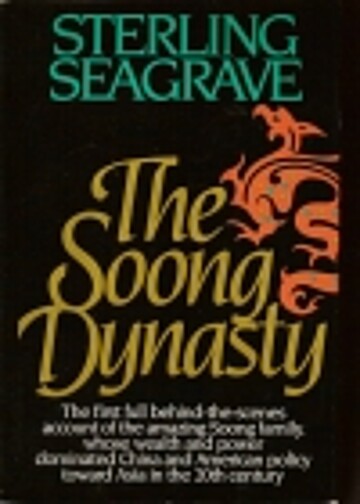



She was a realist"") and captured instead homely merchant-prince H.H.Kung beauteous, softer second daughter Ching-ling-who returned from America when Sun was in the ascendant and, to her father's horror, eloped with him and ""vain,"" ""haughty,"" ""high-strung"" youngest daughter May-ling-who would of course marry ""a young, ill-tempered bravo by the name of Chiang Kai-shek."" Seagrave's snide-to-venomous portrayals would be the book's undoing if he didn't also have vast chunks of history to impart and myriad tales to tell-most especially about Comintern agent Borodin and Chiang, eldest son T.V. So Seagrave reconstructs-through intriguingly assembled bits of evidence-the checkered American sojourn of the gregarious young Chinese runaway, his Shanghai rise (via still-shadowy tong connections) to wealth and prominence as ""that unusual commodity, an American-trained Chinese preacher turned comprador."" Then there were the daughters: eldest Ai-ling, plain and smart and ""iron-willed""-who set off for American schooling at 13, later rejected the advances of the much-older, unsteady Sun (""He was a dreamer. Founding father Charlie Soong (1866-1918), thinks Seagrave-son of Burma doctor Gordon, author of Bitter Rain-became an inspirational legend (thanks to 1920s missionaries, Henry Luce, and Emily Hahn) without due note, by historians, of his part in financing Sun Yat-sen's aborted 1911 Revolution. More fabulous than fiction-because the sinister and shameless doings that Seagrave recounts, with kaleidoscopic historical detailing, involve the celebrated, idolized-and-reviled Soongs.


 0 kommentar(er)
0 kommentar(er)
